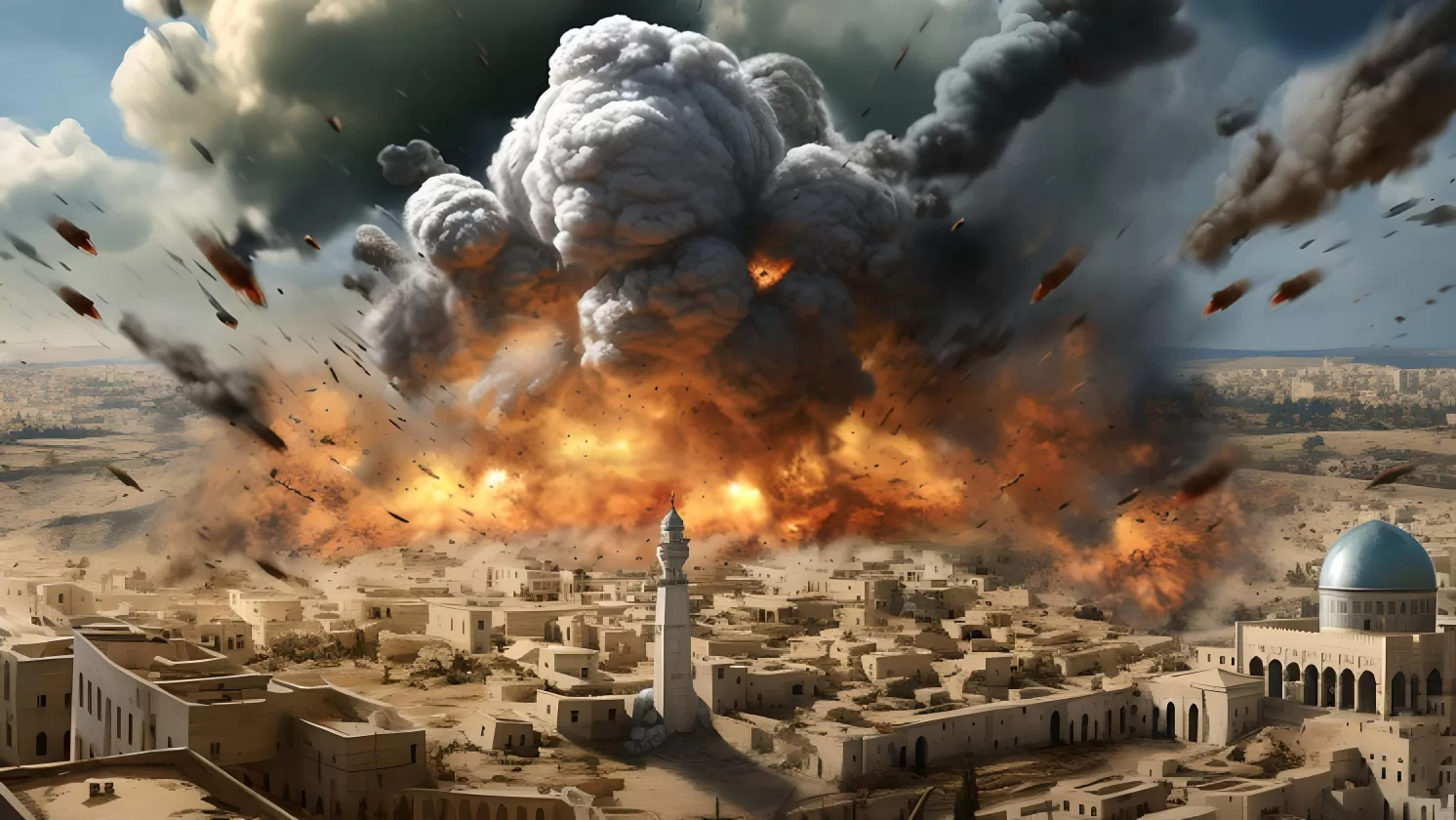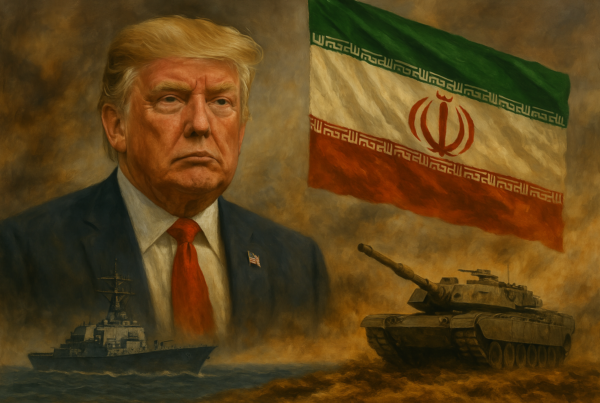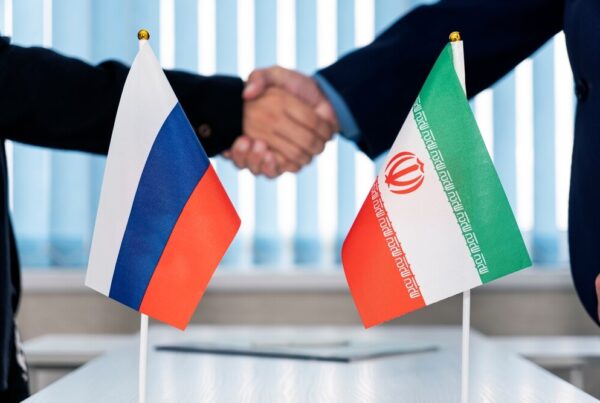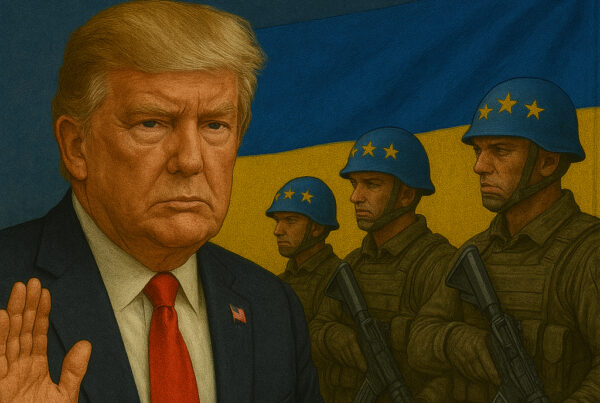On 7 October 2023, the Palestinian Hamas movement commenced military actions against Israel. Israeli towns and settlements bordering the Gaza Strip were attacked. Hamas’ military wing declared that, during the operation, it had struck over fifty Israeli military positions and captured thirty-five Israeli soldiers and settlers. Israel’s defence minister stated that the Hamas movement had declared war on his nation.
In response, the Israeli army announced the start of a ‘counter-terrorist’ operation, ‘Operation Iron Swords’, in the Gaza Strip. A state of emergency has been declared across all of Israel.
The escalation in Israel might trigger a domino effect. The Palestinians stand no chance in such a war, as they cannot destroy Israel or inflict a significant military defeat on it.
Yet, Israel also has nothing to fight for. Formally, Palestine is a territory of Israel which it does not control and cannot control under any circumstances. Physically eradicating all Palestinians is also impossible.
Were we in a different international situation, Palestinians might hope for the sympathy of the global left-wing community, but the USA is led by neoconservatives and globalists. They certainly are not concerned about the Palestinians. However, they are not entirely in favour of Israel’s nationalist policies either.
But it is precisely the domino effect – and above all the behaviour of Islamic states (primarily Iran, Turkey, Saudi Arabia, other Gulf countries, and Egypt) – that could be the logical continuation here. At least, this might have been the strategy in Hamas’ mind when they decided to start the conflict.
Multipolarity is strengthening, and the intensity of Western hegemony in non-Western countries is waning. The West’s allies in the Islamic world – primarily Turkey and the Saudis – do not automatically follow every directive from Washington. In this situation, the Islamic pole, having recently joined BRICS, will undergo its test.
Of course, the conflict may expand to other territories. The involvement of Iran and Hezbollah is not out of the question, potentially leading to military operations in Lebanon and Syria. Furthermore, there are plenty of Palestinians within Israel who harbour deep-seated hatred towards Jews. All of this may have unpredictable consequences.
In my view, the USA and the globalists will now try to quell the situation, as they can gain nothing beneficial from further escalation.
Moreover, the analogies between separatism, irredentism, etc. in different regions of the world are no longer valid. The West acknowledges both territorial unity and the right of nations to secession whenever it suits it, and it rejects it when it is not in its interest. There are no rules. Essentially, we should also adopt the same stance (which we indeed do). Whatever benefits us is right.
In the Israeli-Palestinian conflict, it is challenging for Russia – at least for now – to choose just one side. There are pros and cons in any configuration. Russia has old ties with the Palestinians, and they are, undoubtedly, victims. However, the right-wing faction of Israel also aims to maintain a neutral-friendly policy towards Russia. This stance deviates from the overt and unequivocal Russophobia of the collective West.
Much will now depend on how subsequent events unfold.
And, of course, one must not overlook the eschatological dimension of events. The Palestinians named their operation ‘Storm of Al-Aqsa’, indicating increasing tensions around Jerusalem and the messianic (for Israel) prospects of erecting the Third Temple on the Temple Mount (which is impossible without demolishing the Al-Aqsa Mosque, an essential Islamic shrine). Palestinians aim to ignite the eschatological sensitivity of Muslims – both the Shiites, who are always more attuned to this, and the Sunnis (as they too are not unfamiliar with the themes of the end of the world and the final battle). For Muslims, Israel and Zionism represent the Dajjal [comparable to the Antichrist in Christian tradition].
We will soon see how seriously this is taken. But in any case, it is clear that anyone who ignores eschatology will not understand modern geopolitics. And not just in the Middle East, although it is most evident there.
Meanwhile, Qatar’s foreign ministry has stated that only Israel bears responsibility for the escalation, which arose due to the constant violation of Palestinian rights. Hezbollah announced they will enter the war if Israel initiates a ground operation in the Gaza Strip. And Israel’s National Security Council has just approved the execution of such an operation.
Things are getting more and more serious in Palestine. Important to note is the support from Iran and Qatar, Turkey’s arrogant stance towards Israel, and Hezbollah’s readiness to open a second front. And most importantly, the duration and scale of the war. One day is already a lot for such a tense situation. And if it continues for the immediate future, it will inevitably expand. From the outset, Jews in Israel have found themselves in a tinderbox situation. The existence of Israel is predicated on the promise of the Messiah. If this promise is not upheld in times of crisis, it is not just Israel that is at risk, but much more. Is the “Storm of Al-Aqsa’ such a pivotal moment? It is still unclear. Attention has been diverted from the Nazi terrorists in Kiev. It is high time for us to act.
Perhaps the bold attack on Israel by Hamas might be the black swan event that shifts the balance of power in the global game. Everything seems to be at a standstill, and this explosion relieves the tension. Fifty years after the Six-Day War. This is also part of the wars of Jehovah.
Regarding Israel’s nuclear arsenal, it is not a catch-all solution. Even if Israel were to use it, what would become of the vast number of angered Arabs? The main point is that the USA, with its global leadership, has categorically failed. The USSR is no more. No one, even if they wanted to, can tell the Jews and Arabs to calm down. Meanwhile, Soros’ left-wing liberals have found nothing better to do than to fight against the right-wing Zionists in Israel. Since the war is ongoing and everyone is perishing in it, it is only natural that it affects not just the Eastern Slavs but everyone else as well. In this scenario, both sides are fighting for something unattainable.
Imagine Israel, along with the collective West, starting a large-scale war with Islam. But then there’s Russia, China, India, BRICS. They certainly will not unquestioningly follow the West. They will act independently. And wherever the fabric is thin, it will tear. After the inception of the Shanghai Cooperation Organisation, we know where our weak points lie. And we draw conclusions. Now, it is the turn of others.
PS: The Russian elite presents a fantastical spectacle right now. One-third are anti-Zionists, pleased with the Palestinian uprising. Another third are pro-Zionists since Israeli rightists are tolerant towards Putin and the Special Military Operation. They are rallying to defend Israel. The last third are globalists, who support the Council on Foreign Relations and Biden, but what they should say and do is not clear. After all, Soros is against Israel, but they are for Soros (roughly speaking). Which stance will prevail? Maybe, as usual, all three simultaneously.





